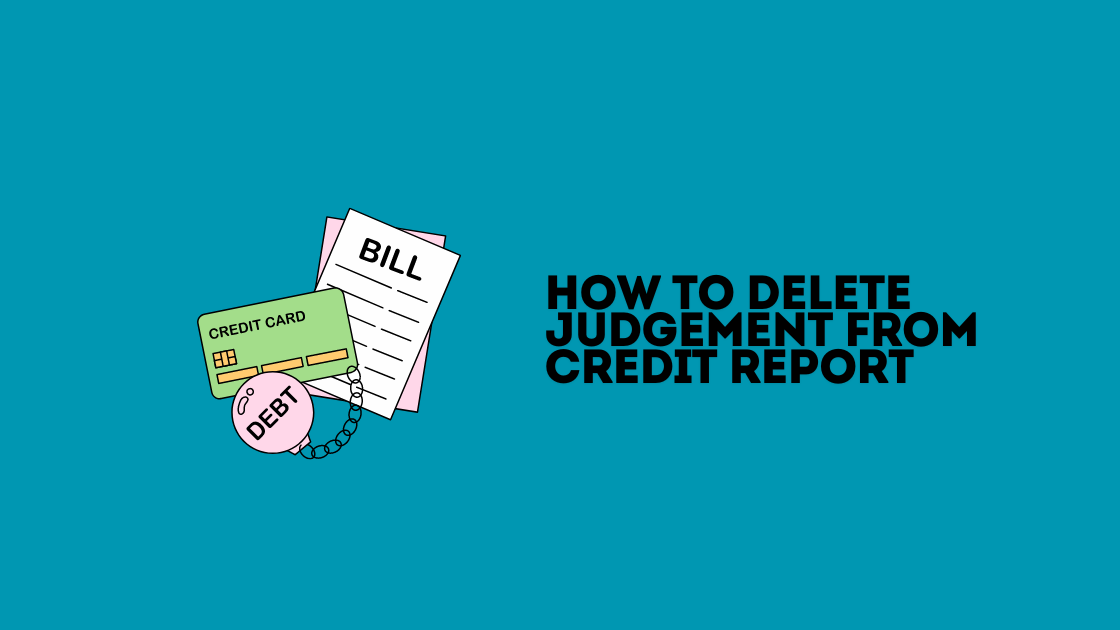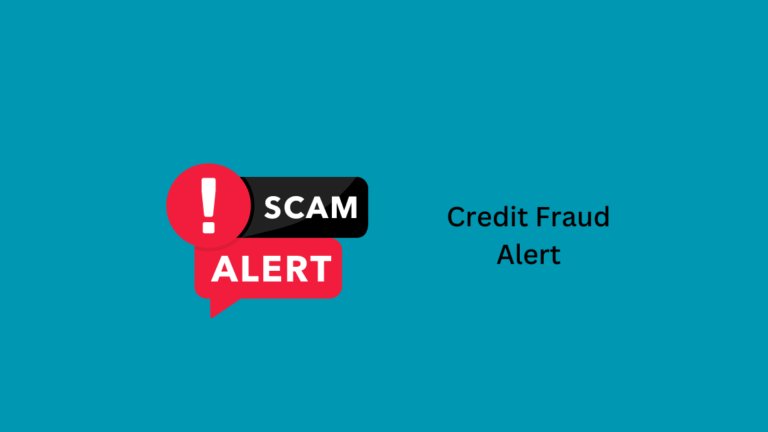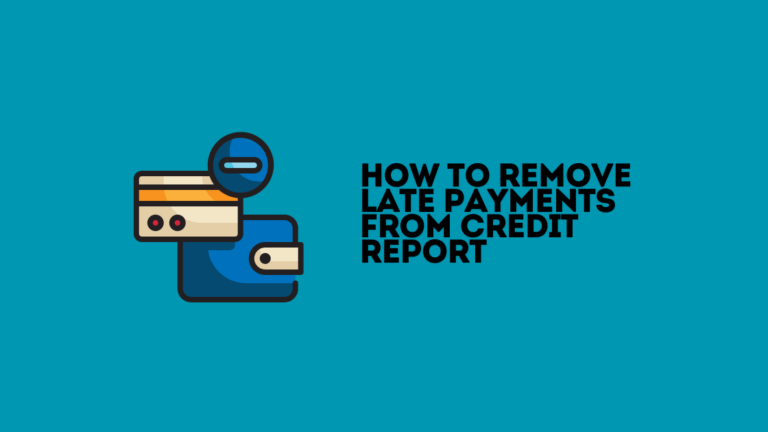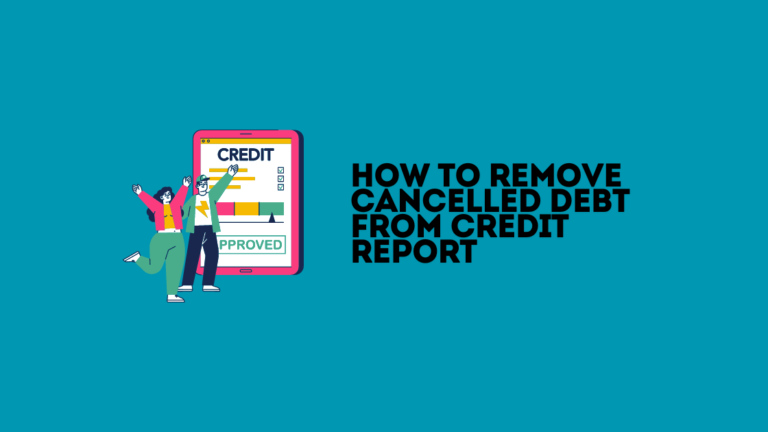How to Delete Judgement from Credit Report: Clear Steps
To delete a judgment from a credit report, you must first verify its accuracy. Then, dispute any inaccuracies with the credit bureaus.
Judgments on a credit report can significantly impact your credit score and financial stability. These judgments are public records that indicate you have been sued and a court has ruled against you. Removing them involves a precise process to ensure all information is accurate.
Mistakes on your credit report can be costly, leading to higher interest rates or loan denials. Understanding how to effectively manage and remove these judgments can help restore your financial health. Disputing inaccuracies and following up with the credit bureaus are key steps in this process. Taking control of your credit report can lead to better financial opportunities.

Credit: www.theoasisfirm.com
Introduction To Credit Report Judgments
Your credit report is a vital financial document. It holds important details about your credit history. One aspect of this report is judgments. Judgments can have significant effects on your credit score. Understanding these judgments is crucial.
What Is A Judgment?
A judgment is a court order. It states that you owe money to a creditor. This usually follows a lawsuit for unpaid debt. Once a creditor wins, the judgment appears on your credit report.
Judgments can be of two types:
- Default Judgment: You didn’t respond to the lawsuit.
- Consent Judgment: You agreed to settle the lawsuit.
Both types will impact your credit report. It’s essential to address them promptly.
Impact On Your Credit Score
Judgments can severely affect your credit score. They signal lenders that you are a high-risk borrower. This can make getting new credit challenging.
Here is how a judgment impacts your credit:
| Impact | Description |
|---|---|
| Credit Score Drop | Your score can drop by 100 points or more. |
| Loan Denials | Lenders may deny your loan applications. |
| Higher Interest Rates | If approved, you may get higher interest rates. |
It’s crucial to remove judgments from your report. This can help restore your credit score.
Checking Your Credit Report
To delete a judgment from your credit report, start by checking your credit report. This step is crucial. It helps identify any incorrect or outdated entries.
Identifying Judgments
Judgments are public records. They appear on your credit report. Look for any court judgments under the public records section.
These judgments impact your credit score negatively. Ensure you identify them accurately.
| Judgment Details | Information to Verify |
|---|---|
| Case Number | Verify the case number matches your records. |
| Judgment Amount | Check if the amount is accurate. |
| Filing Date | Confirm the date the judgment was filed. |
| Court Name | Ensure the court name is correct. |
Understanding Credit Report Entries
Credit report entries are categorized into different sections. Familiarize yourself with these sections to navigate your report easily.
- Personal Information: Your name, address, and Social Security number.
- Accounts: Details of your credit accounts.
- Inquiries: Companies that have checked your credit.
- Public Records: This includes judgments, bankruptcies, etc.
Each entry has specific details. Pay close attention to the public records section for judgments.
- Review each section carefully.
- Make notes of any discrepancies.
- Highlight judgments and other negative items.
Understanding these entries helps you take steps to correct or remove them.
Validating The Judgment
Before deleting a judgment from your credit report, you must validate it. Validating ensures the judgment is accurate and correct. This process involves contacting the courthouse and verifying the judgment details.
Contacting The Courthouse
First, reach out to the courthouse where the judgment was filed. You can contact them via phone, email, or in person. They will provide you with the necessary information to proceed.
| Method | Details |
|---|---|
| Phone | Call the courthouse and ask for the records department. |
| Send an email requesting judgment information. Include your case number. | |
| In Person | Visit the courthouse and request the documents from the clerk. |
Verifying Judgment Details
Once you have the information, verify the judgment details. Check for accuracy in the following:
- Case Number
- Date of Judgment
- Amount Owed
- Plaintiff Name
- Defendant Name
Ensure all details match the information on your credit report. If discrepancies exist, gather evidence to dispute them.

Credit: www.self.inc
Negotiating With Creditors
Deleting a judgment from your credit report can feel daunting. Yet, one effective way is by negotiating with creditors. This process requires understanding, patience, and clear communication.
When To Negotiate
Knowing the right time to start negotiations is crucial. Start negotiations when you have gathered all the necessary information. Ensure you understand the judgment details and your financial situation.
Timing can be everything. Negotiate when you have a stable income or a lump sum to offer. Creditors are more likely to agree if they see your ability to pay.
Tips For Successful Negotiation
Be prepared before starting the negotiation. Gather all relevant documents and understand your credit report. This preparation shows you are serious and well-informed.
- Stay Calm: Maintain a polite and professional tone.
- Be Honest: Explain your situation truthfully.
- Offer Solutions: Propose realistic payment plans or lump sum settlements.
- Get It in Writing: Ensure any agreement is documented.
Using these tips can improve your chances of a successful negotiation. Always remember, clear and honest communication is key.
Paying Off The Judgment
Paying off a judgment is crucial. It is the first step to clean your credit report. A paid judgment can lead to removal from your credit report. Below are key actions to take for settling your judgment.
Settlement Options
You have several options to settle the judgment. Choose the one that fits your situation.
- Lump Sum Payment: Pay the full amount at once. This is the quickest method.
- Payment Plan: Request a payment plan. Spread the payments over time.
- Negotiated Settlement: Negotiate a reduced amount. Offer to pay a portion of the total.
Always communicate with the creditor. Ensure you understand the terms.
Documenting Your Payment
Documentation is vital. It provides proof of your payment. Keep detailed records.
- Request a written agreement before making any payment.
- Get a receipt for each payment made.
- Ask for a Satisfaction of Judgment document once paid in full.
Store these documents safely. You may need them to prove the judgment is paid.
Use this template for record-keeping:
| Date | Amount Paid | Receipt Number | Notes |
|---|---|---|---|
| 01/01/2023 | $500 | 12345 | Initial Payment |
| 02/01/2023 | $500 | 12346 | Final Payment |
Keeping accurate records ensures you can prove the debt is settled. This will help in removing the judgment from your credit report.
Disputing Inaccuracies
Disputing inaccuracies on your credit report is a critical step. Incorrect judgments can damage your credit score. Correct these errors to improve your financial health. Below are steps to guide you.
How To File A Dispute
Begin by gathering your credit reports from all three bureaus: Equifax, Experian, and TransUnion. Review each report for inaccurate judgments.
- Identify the incorrect judgment.
- Gather supporting documents proving the error.
- Write a dispute letter to each credit bureau.
Use the bureau’s online dispute form or send a letter. Include copies of your documents. Keep your letter concise and clear.
Here is a sample dispute letter:
Your Name
Your Address
City, State, ZIP Code
Date
Credit Bureau Name
Address
City, State, ZIP Code
Dear Sir/Madam,
I am writing to dispute an incorrect judgment on my credit report. The judgment is listed as [Judgment Details]. This judgment is incorrect because [Reason for Dispute].
Attached are copies of [list of supporting documents]. Please investigate this matter and correct the inaccurate information.
Sincerely,
Your Name
Follow-up On Dispute Results
After filing your dispute, monitor your credit report. The bureau has 30 days to investigate. They will notify you of the results.
- If the judgment is removed, verify your credit report updates.
- If the dispute is denied, review the bureau’s explanation.
You may need to provide additional documents. Persistence is key. Regularly check your credit report to ensure accuracy.
Below is a summary table for follow-up steps:
| Action | Timeline |
|---|---|
| File dispute | Day 1 |
| Credit bureau investigation | Days 1-30 |
| Receive results | Day 30 |
| Verify updates or provide more info | As needed |
Improving Your Credit Score Post-judgment
After a judgment is removed from your credit report, your next step is crucial. Improving your credit score post-judgment can seem daunting, but it’s achievable with dedication. Focus on building good credit habits and monitoring your credit score regularly.
Building Good Credit Habits
Start by consistently paying your bills on time. This action significantly impacts your credit score. Set up automatic payments to avoid missing due dates.
Keep your credit card balances low. Aim to use less than 30% of your available credit limit. High balances can hurt your credit score.
Consider diversifying your credit mix. A mix of credit types, such as installment loans and revolving credit, can boost your score.
Be cautious with new credit applications. Too many applications in a short time can negatively impact your score.
Monitoring Your Credit Score
Regularly check your credit reports for accuracy. Errors can drag down your score. Use free annual credit report services to stay updated.
Sign up for credit monitoring services. These services alert you to significant changes in your credit report. They can help you spot potential identity theft early.
Review your credit score monthly. Tracking your score helps you see the impact of your credit habits. Many banks offer free credit score tracking tools.
| Action | Impact on Credit Score |
|---|---|
| Pay bills on time | Positive |
| Keep credit card balances low | Positive |
| Monitor credit reports | Positive |
| Avoid multiple credit applications | Positive |
Improving your credit score post-judgment is a journey. By building good credit habits and monitoring your score, you can achieve a healthier credit profile.
Legal Assistance And Advice
Understanding how to delete a judgment from your credit report can be complex. Legal assistance and advice play a crucial role in this process. Expert guidance ensures you follow the correct legal steps. This section explores when to seek legal help and how to choose the right attorney.
When To Seek Legal Help
Not all credit issues need a lawyer. Yet, some cases require legal expertise. Here are a few situations:
- If the judgment is inaccurate or fraudulent.
- If you face difficulties disputing the judgment.
- If you receive a court summons related to the judgment.
Legal help ensures your rights are protected. It also increases the chances of removing the judgment.
Choosing The Right Attorney
Selecting the right attorney is vital. Consider these factors:
| Factor | Details |
|---|---|
| Experience | Choose an attorney with experience in credit report issues. |
| Reputation | Read reviews and ask for references. |
| Communication | Ensure the attorney communicates clearly and promptly. |
| Fees | Understand the fee structure and any additional costs. |
Meeting with potential attorneys helps you decide. Ask questions about their experience and success rates. Feel confident with your choice for the best results.
Frequently Asked Questions
Can A Judgement Be Removed From A Credit Report?
Yes, a judgment can be removed from a credit report. Dispute errors or wait for the judgment to expire. Accurate information must be provided.
How Long Do Judgements Stay On A Credit Report?
Judgments stay on a credit report for seven years. This period begins from the filing date of the judgement. Removal of the judgment may improve your credit score. Always check your credit report for accuracy.
Can I Remove A Creditor From My Credit Report?
Yes, you can remove a creditor from your credit report. Dispute inaccurate information with the credit bureau. Provide evidence to support your claim. The bureau will investigate and remove errors. You can also negotiate with the creditor to remove negative entries.
How To Remove Default Judgement?
File a motion to vacate the default judgment. Explain why you missed court. Attach supporting documents. Attend the hearing.
How Can I Remove A Judgment From My Credit Report?
Dispute errors with credit bureaus, negotiate with creditors, or seek legal help to vacate the judgment.
Conclusion
Removing a judgment from your credit report can significantly improve your financial health. Follow the steps outlined to regain control. Stay proactive, check your report regularly, and consult professionals if needed. With dedication, you can clear your credit history and pave the way for a better financial future.







